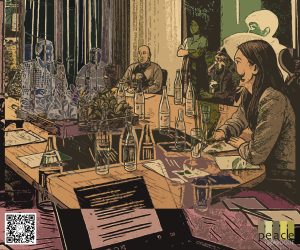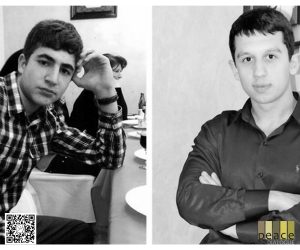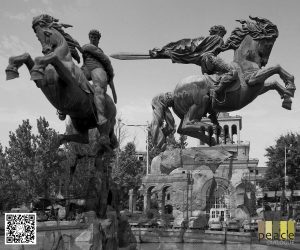ACTIVITIES

PEACE DIALOGUE NGO’S STRATEGY: 2026-2030
In conflict and post-conflict environments, through its initiatives conducted locally, regionally, and internationally, Peace Dialogue endeavors to make meaningful contributions to:
- Forming multi-dimensional dialogue,
- Protecting human rights,
- Cultivating a culture of peace and fostering peace movement,
- Nurturing respect for democratic values,
- Facilitating the development and fortification of democratic institutions,
- Avocating for the interests and rights of conflict-affected groups.

Multi-Stakeholder Foresight Dialogue: Exploring Future Scenarios in Armenian-Azerbaijani Relations
Regional youth from northern Armenia continue civic journalism training with Peace Dialogue NGO

On 3-7 December, Peace Dialogue NGO organized its second civic journalism training session as part of the Training Next-Generation Civic Journalists in Northern Armenia as Future Democracy Watchdogs project. Youth interested in civic journalism and possible careers as journalists and broadcast news reporters travelled to Dilijan to attend learning sessions on how to make interesting, compelling photojournalism reports and short videos.
Discussion on the Activities Implemented by the Armenian MoD within the Framework of 2017-2019 Action Plan Derived from the National Strategy for Human Rights Protection.
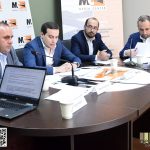
Meeting participants emphasized the importance of civil society monitoring, and they expressed willingness to work together in developing the next three-year action plan.
Youth from Lori, Shirak and Tavush regions of Armenia on their way to becoming civic journalists

Peace Dialogue organized and hosted its first training in civic journalism for regional youth from northern Armenian between 29 September and 2 October in Gyumri. 18 young men and women (ages 16-25) traveled to Gyumri to attend an event led by the creative producer at Armenian Public TV (H1) Armen Sargsyan and media trainer Mane Papyan. The four-day event, organized as part of a project entitled “Preparing New Generation Civic Journalists in the Northern Regions of Armenia” which is funded by the Canadian government’s Fund for Local Initiatives (CFLI), began with discussions on journalistic theory and what the role of journalists is in democratic societies.
Are criminal investigations related to non-combat deaths in the army carried out objectively?
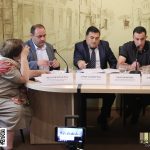
A discussion entitled Investigation of criminal cases initiated in non-combat deaths in the army: is comprehensive, thorough and impartial investigation of cases guaranteed? took place on 12 September 2019 in Article 3 Club. The event was the result of cooperative efforts between Peace Dialogue NGO and Article 3 Club. Some of the criminal cases launched based on deaths recorded over the past 10 years have been dropped or suspended during the judicial process. Meanwhile, some are still in the preliminary stages of investigation. Victims’ successors cannot find out the real causes of their relatives’ death, and it has become common practice that those responsible for these criminal acts go unidentified and are not punished.
Second Working Meeting of the Monitoring Group for Defense Ministry Actions Based on the National Human Rights Action Plan

The second working meeting of the Monitoring Group, developed as part of the “Proactive Civil Society Participation in the Protection and Promotion of Human Rights in the Armenian Military Forces” program, took place on 10 July.
The Court Obligated the Ministry of Defense to Re-Calculate the Amount of Compensation for Military Serviceman’s Tuition Fee

In 2018, Peace Dialogue NGO initiated a strategic litigation for the protection of the interests of the military servicemen who graduated from military educational institutions and refused to pursue post-educational contractual military service.
Presentation of the Step by Step Guide “Human Rights in the Armed Forces”

Intended for disseminating the necessary practical information for the protection of human rights during military service among conscripts and their relatives, the step by step guide has been developed for the purpose of preventing cases of violation of human rights during conscription or military service if necessary. Specialists of the RA Ombudsman’s Office, the RA MoD and the Ministry of Education and Science were also involved in the preparation of the guide.


